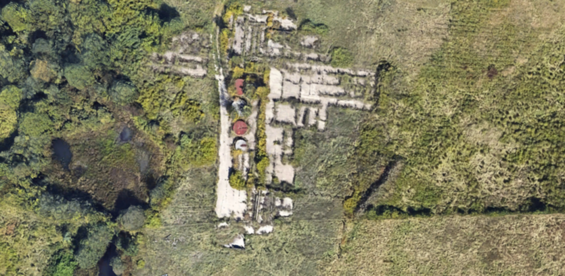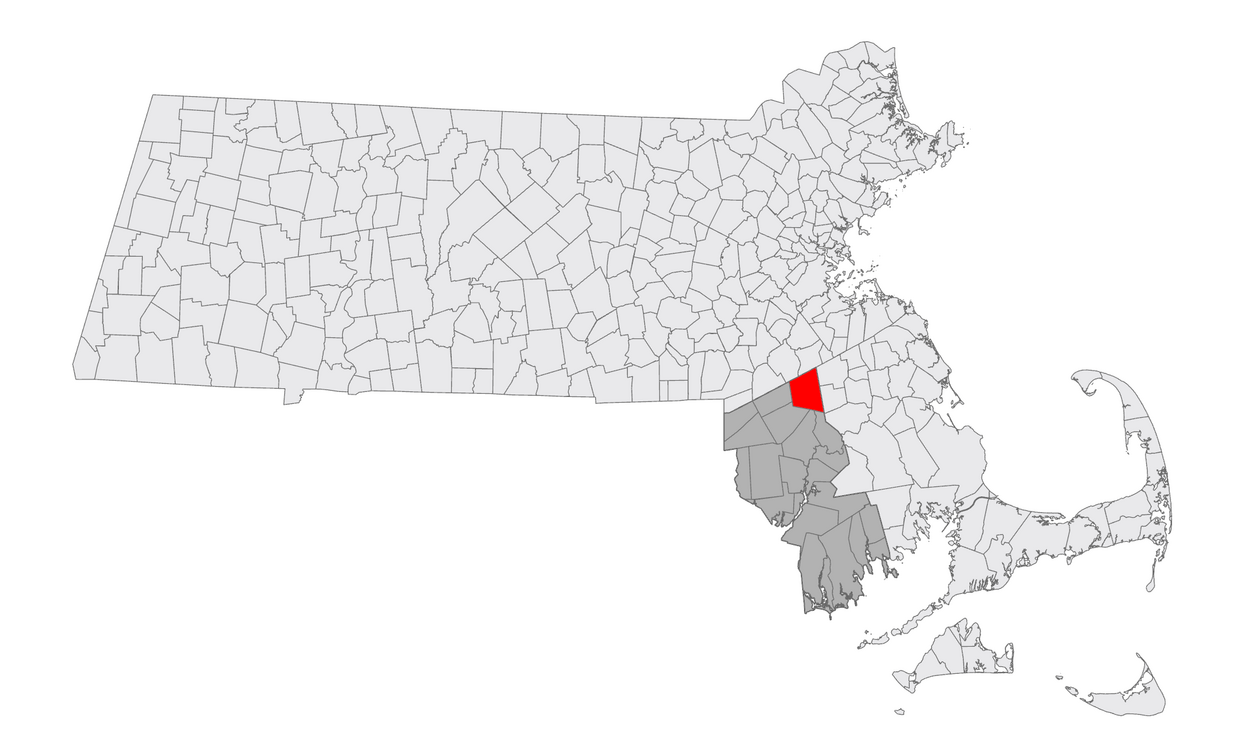Overview
Easton is a town in Bristol County, Massachusetts, in the South Eastern part of the state. They have a population of 25,364 people and an area of 28.8 square miles. Climate hazards present in Easton include inland flooding, other severe weather, drought, and extreme temperatures
Easton Core Team
The MVP 2.0 Core team is a group of municipal staff and Community Liaisons who work together to identify local climate resilience priorities and implement a project that supports those priorities.
Easton's Community Liaisons include representation from:
- Community Mental Health Liaison
- Procurement Director at DMH Ingredients, Inc., Easton resident
- Director of Diversity, Equity, Inclusion & Accessibility, Easton Public Schools
- Director of Public Relations, Easton Food Pantry
- Farm Director, Stonehill College, Easton resident and food pantry coordinator
- Executive Director, Ames Free Library
Easton's Core Team includes municipal representation from:
- Assistant Town Administrator
- Director, Health & Community Services
- EMS / MIH / Public Health Officer
- Benefits and Grants Navigator, Financial and Veterans Services
- Vice President of Community Investment - South Region, MassDevelopment Select Board Chair, Easton
Easton Community Resilience Priorities
Community resilience priorities are practical actions created during the MVP 2.0 Planning Grant process. They were shaped through community input, thoughtful discussion about changing local needs, and feedback from Environmental Justice groups and other community members.
Easton, in partnership with their Core Team, identified the following priorities through the MVP 2.0 process.
| Priorities | Potential Actions | ||
|---|---|---|---|
| Priority 1: Transportation | Potential Actions: Improve accessibility through improved sidewalks, bus service, and safe pedestrian access, especially for food access such as grocery stores and community gardens. Focus on increasing daily transportation access for elderly and low-income populations. Address transportation and childcare barriers to increase local employment and support working families. | ||
| Priority 2: Food and Water | Potential Actions: Improve access to healthy and affordable food through expanding food access points (e.g. more community gardens), offering plant/tree giveaways, and community education about residential gardening. Enhance food access by encouraging edible landscaping in public areas and new development. Improve water quality and address concerns over PFAS and water contamination through additional or expanded water treatment facilities to improve health and safety. | ||
| Priority 3: Infrastructure | Potential Actions: Seek funding for tree and forest management to protect power lines and reduce power outages, through regional forest management grants or dedicated sources. Develop strategic tree trimming/planting plan to optimize utility safety, power outage reduction, fire mitigation, climate resilience, and aesthetics based on needs in different areas of town. | ||
| Priority 4: Housing | Potential Actions: Create home maintenance assistance programs, especially for older adults/families within the community. Support resilient and safe housing by promoting backup heating, cooling, and power options, with focus on reducing cost of AC units or generators to most vulnerable community members and older adults. | ||
| Priority 5: Community | Potential Actions: Create options for youth involvement and activities in community resilience projects. | ||
| Priority 6: Jobs + Economy | Potential Actions: Better promote access to financial, utility and food assistance, and housing resources to community members facing financial burdens. | ||
| Priority 7: Ecosystems | Potential Actions: Evaluate stormwater drainage/conveyance issues linked to sensitive environmental and social areas and explore nature-based solutions | ||
Easton's Action Grant Projects
The MVP Action Grant provides funding to communities that want to take important steps to prepare for climate change, such as dealing with extreme weather, flooding, rising sea levels, and extreme heat.
Wetland Restoration- Removal of Abandoned Structures (FY20)
The project restored a degraded stream channel, removed derelict farm structures, restored a former wetland, and created an "invasive free" buffer zone around the restored stream and wetland area, all within a Flood Zone A. The approximately 9.7 acre work area is located on town-owned conservation land known as Sam Wright Farm within the Canoe River Area of Critical Environmental Concern.








